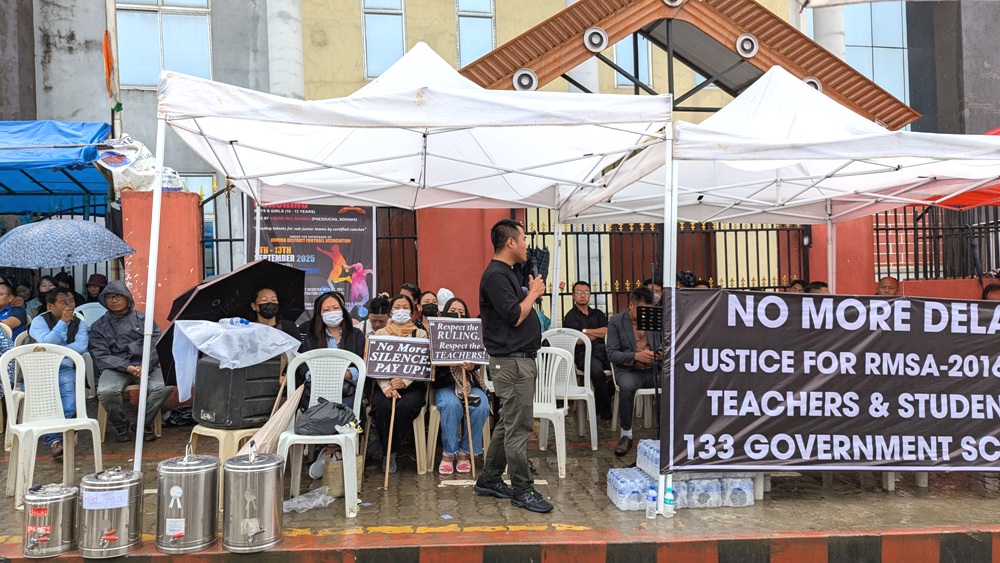RMSA 2016 teachers say Nagaland govt. defying court orders by citing fixed pay, demand equal salary and service benefits.
Share

DIMAPUR — The Nagaland RMSA Teachers’ Association 2016 has refuted the School Education department’s recent clarification on the ongoing pay dispute, terming the government’s stand on “fixed pay” and “co-terminus” appointments as misleading and contrary to court rulings.
In a counter-statement issued on Tuesday, the teachers maintained that both the Gauhati High Court, Kohima Bench, and Supreme Court have already ruled in favour of pay parity, directing the state government to grant them the same salary and service benefits as other teachers with equal qualifications and responsibilities.
“These press statements are confusing people. They make it look like the courts haven’t settled the matter. That is not true—the law is crystal clear, and teachers deserve equal pay,” it said, referring to the government’s recent clarification.
They alleged that the department’s attempt to revive arguments about “fixed pay” and “co-terminus with the scheme” was “nothing but breaking the law and denying justice.” The association argued that earlier batches of teachers recruited under SSA 2010, SSA 2013 and RMSA 2013 had all been regularised, while the RMSA-2016 batch continues to be denied full pay scale.
Also read: RMSA teachers dismiss Nagaland government clarification as ‘half cooked story’
“The government must explain this clear discrimination,” it asserted.
The association also questioned the government’s recruitment narrative, pointing out that although the 2016 batch was advertised under the Nagaland Education Mission Society (NEMS), a number of appointees on the waiting list later received appointment letters directly from the Department of School Education. This, the teachers claimed, exposed the state’s attempt to distance itself from responsibility.
Citing records of the Project Approval Board (PAB), the association said the Centre had raised concern over the state’s recruitment advertisement not conforming to NCTE norms, and had advised Nagaland to revise it to ensure teachers remained the responsibility of the state regardless of external funding.
“Despite such directives, Nagaland has continued to misclassify RMSA-2016 teachers, depriving them of their rightful recognition as state cadre teachers,” the association stated.
On the issue of salaries, the association said the fixed pay of INR 31,315 currently provided does not reflect the 7th ROP pay scale, and called it “exploitative.”
The teachers further argued that treating their jobs as “co-terminus” with RMSA funding was self-contradictory, since the 133 upgraded high schools created under the scheme continue to function. “If teachers’ jobs are temporary, will the schools also be downgraded when funding patterns change?” they asked, adding that such a position goes against the intent of RMSA, which was to universalise secondary education and expand access to Classes IX and X in rural areas.
“The frameworks and manuals of Samagra Shiksha have clearly illustrated that financial support from the government of India, including salary support, was never intended to substitute or replace the state’s fundamental responsibility for education. The Nagaland government, therefore, cannot shirk its obligations by hiding behind the excuse of a centrally sponsored scheme,” the association said.
“Justice for teachers is justice for students. Education cannot be reduced to a scheme, nor teachers to bonded labour,” the association asserted, while urging the state government to implement the court’s directives without delay.